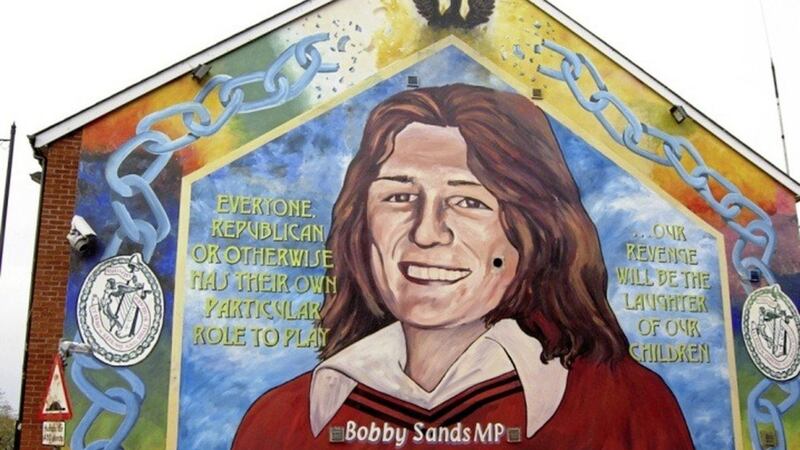Sunday week ago I was speaking with Danny Morrison about this year being the 40th anniversary of the 1981 hunger strike when ten republicans died in the H-Blocks of Long Kesh and about the work Danny had been doing on reissuing ‘The Diary of Bobby Sands’, which covered the first seventeen days of Bobby’s hunger strike.
In the course of the conversation Danny said: “In a few hours’ time, forty years ago, Bobby ate his last meal.”
Those words jolted me and made me pause and think of Bobby in his cell that evening and before him the last food he would ever consume.
Danny’s words stayed with me the rest of that day and into the next which marked when Bobby formally started his hunger strike on March 1, 1981.
In the forty years until Danny had made that comment, I had not thought of Bobby’s last meal or the last meal of Francis Hughes, Patsy O Hara, Raymond McCreesh, Joe McDonnell, Martin Hurson, Kevin Lynch, Kieran Doherty, Thomas McElwee and Michael Devine or the last food eaten by Michael Gaughan or Frank Stagg.
In those heroic, tragic and tumultuous days there was little time to think about anything other than saving the lives of those on hunger strike and every effort that was humanly possible went into that endeavour by their families, the leadership of Sinn Féin and the prisoners’ supporters who occupied the streets in unremitting protest in solidarity with those dying in the prison hospital.
On the first day of his hunger strike Bobby’s first entry into his diary reads: ‘Standing on the threshold of another trembling world; may God have mercy on my soul. My heart is very sore because I know I have broken my poor mother’s heart and my home is struck by unbearable anxiety. But I have considered all arguments and tried every means to avoid what has become the unavoidable: it has been forced upon me and my comrades by four and a half years of stark inhumanity.’
The ‘stark inhumanity’ was the prison regime in the H-Blocks and Armagh Women’s Prison where the blunt instrument of brutality was daily and routinely used to try to break the prisoners’. The protest was aimed at restoring the political status introduced in 1972, which had led to relative peace in the jails, and which the British government had arbitrarily withdrawn in 1976.
Bobby’s diary, written partly in Irish, reflects his innermost feelings about his parents and family; the women on protest in Armagh Jail; his comrades in the H-Blocks; Michael Gaughan and Frank Stagg; the importance of the battle to win political status, which he describes in terms of ‘what is lost in here is lost from the Republic’; the petty vindictive warders, leaving food in Bobby’s cell; and his celebrating his 27th birthday on March 9.
There is a calmness in his words, a determination but also great courage.
The diary is a remarkable historical document which provides a personal insight into the thinking, not just of Bobby, but of all the political prisoners.
These qualities are also reflected in a podcast, ‘Guthanna 81/Voices of 81’ by Brendan ‘Bik’ McFarlane, a comrade and friend of Bobby’s and Officer Commanding (OC) of the H-Block prisoners in 1981.
Brendan speaks about the strength the prisoners drew from their families; their high morale and that the list of volunteers for hunger strike numbered between 70-80.
He speaks about Bobby’s insistence that Brendan not Seanna Walsh would replace him as OC because Brendan would let Bobby die whereas Seanna was his friend and might not.
Bobby interrogated Brendan about who would replace himself when he died. When he was told it was Joe McDonnell, Bobby replied: ‘It’s a good choice. Joe McDonnell will never let you down.’
At the front of the diary there is a striking, digitally enhanced, colour photograph of Bobby with a broad smile.
At the back there is a photograph of Bobby’s nomination form to stand in the Fermanagh and South Tyrone by election. It is signed by Bobby and Pat Finucane, later killed by state agents.
The impact of the deaths of ten hunger strikers, and the election of Bobby Sands MP and TDs Kieran Doherty and Paddy Agnew, created a new dynamic on the road to reunification which we witness to this very day.








